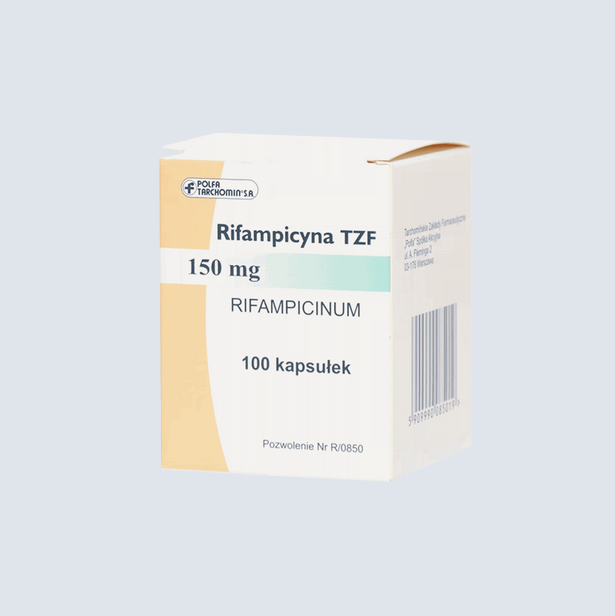Rifampicin 150 mg 100 capsules
€66
An antibiotic
dosage
Please choose
In stock
Rifampicin 150 mg 100 capsules
Product Details
Rifampicin 150 mg 100 capsules
Product Information
Rifampicin TZF-Rifampicin-application and action
Composition:
rifampicin
Character:
capsules
Category: :
It is used for infections (anti-infectious)
Specialties: :
Infectious diseases and parasitic lung diseases
Action :
antitubercular bactericidal
Indications for use:
Chemotherapy of all forms of tuberculosis in combination with other anti-tuberculosis drugs. Chemotherapy for leprosy. Treatment - in exceptional cases - of bacterial infections resistant to other antibiotics, such as severe infections caused by staphylococcus, legionellosis and carriers of meningococcus and Haemophilus influenzae type b.
Dosage:
The dosage and frequency of taking the drug is determined by the doctor.Inside. The drug is administered on an empty stomach 1 hour before a meal or 2 hours after it ends. It is recommended to use the drug for continuous treatment.Alcohol should not be consumed during treatment.
Tell your doctor:
When you have hypersensitivity to rifampicin or other ansamycins, you suffer from liver disease, jaundice.When you take anticonvulsants, antiarrhythmic drugs, oral anticoagulants, sleeping pills (barbiturates), antifungal drugs (Fluconazole, Itraconazole, ketoconazole), beta-blockers, Enalapril, cyclosporine, tacrolimus, digitalis glycosides, clofibrate, corticosteroids, oral contraceptives, progestogens, others antibacterial and antiviral drugs, haloperidol, Levothyroxine, methadone and other narcotic analgesics, quinine, antidepressants, theophylline derivatives, antacids, probenecid, cotrimoxazole, halothane, isoniazid.If you are or assume that you are pregnant, as well as when you are breastfeeding. During pregnancy, use only if the expected benefit to the mother exceeds the potential risk to the fetus.
Side effects:
Gastrointestinal disorders, jaundice, rarely hepatitis, blood image disorders, disorders of the central nervous system, menstrual disorders, sometimes transient disorders of the urinary system, transient benign skin reactions, hypersensitivity reactions, herpetic stomatitis, conjunctivitis, swelling of the face and extremities, visual impairment. The drug turns urine, feces, and tears orange.
Manufacturer
POLFA TARCHOMIN
A. Fleminga 2
Warszawa

